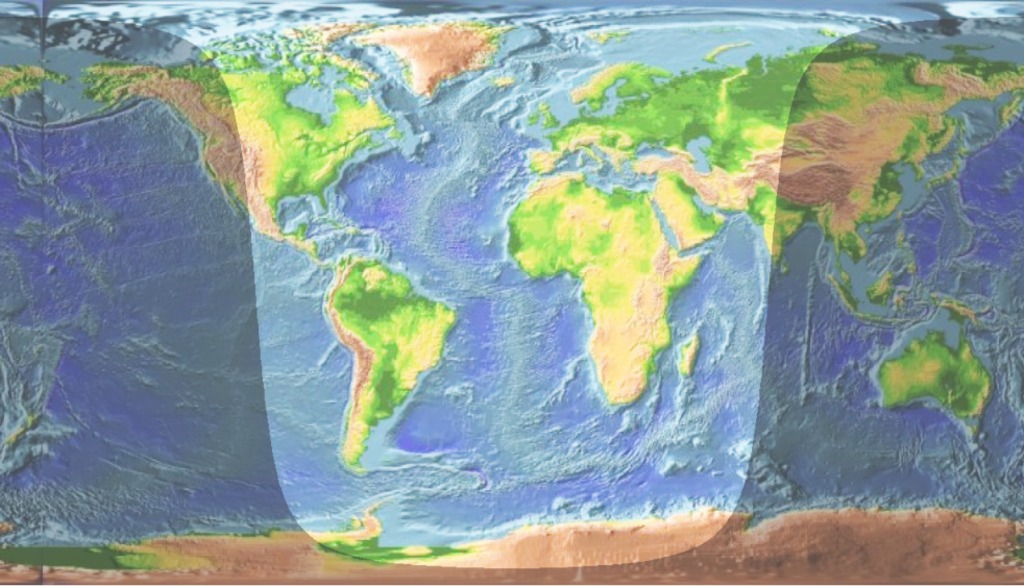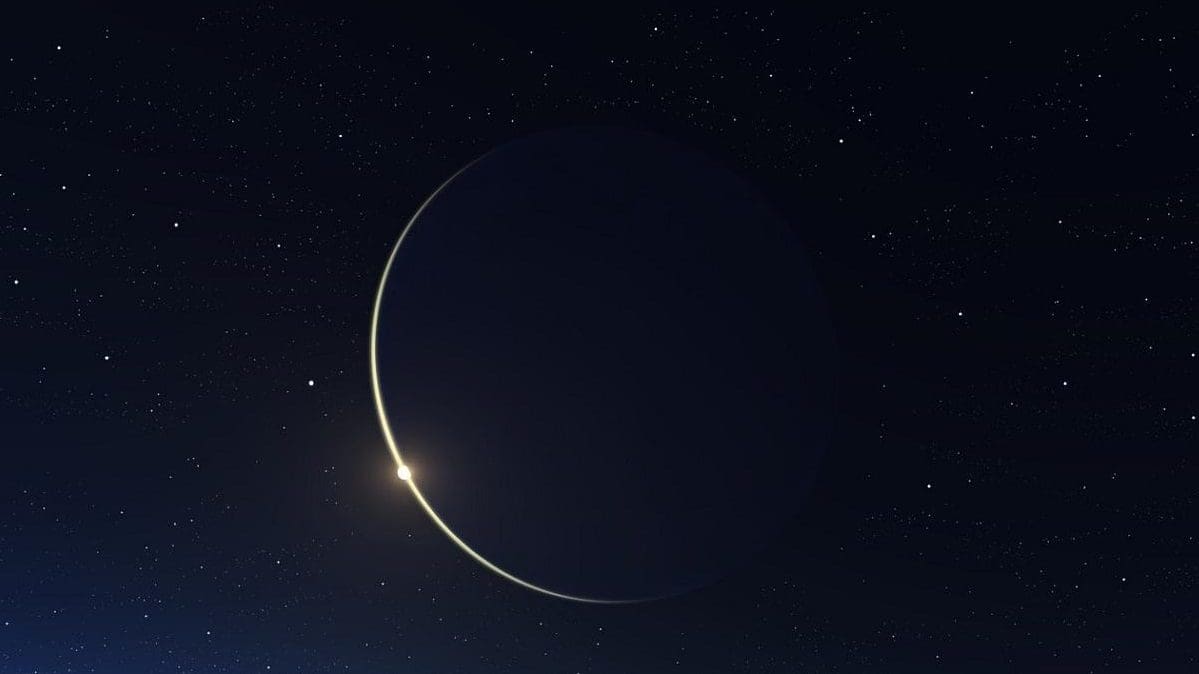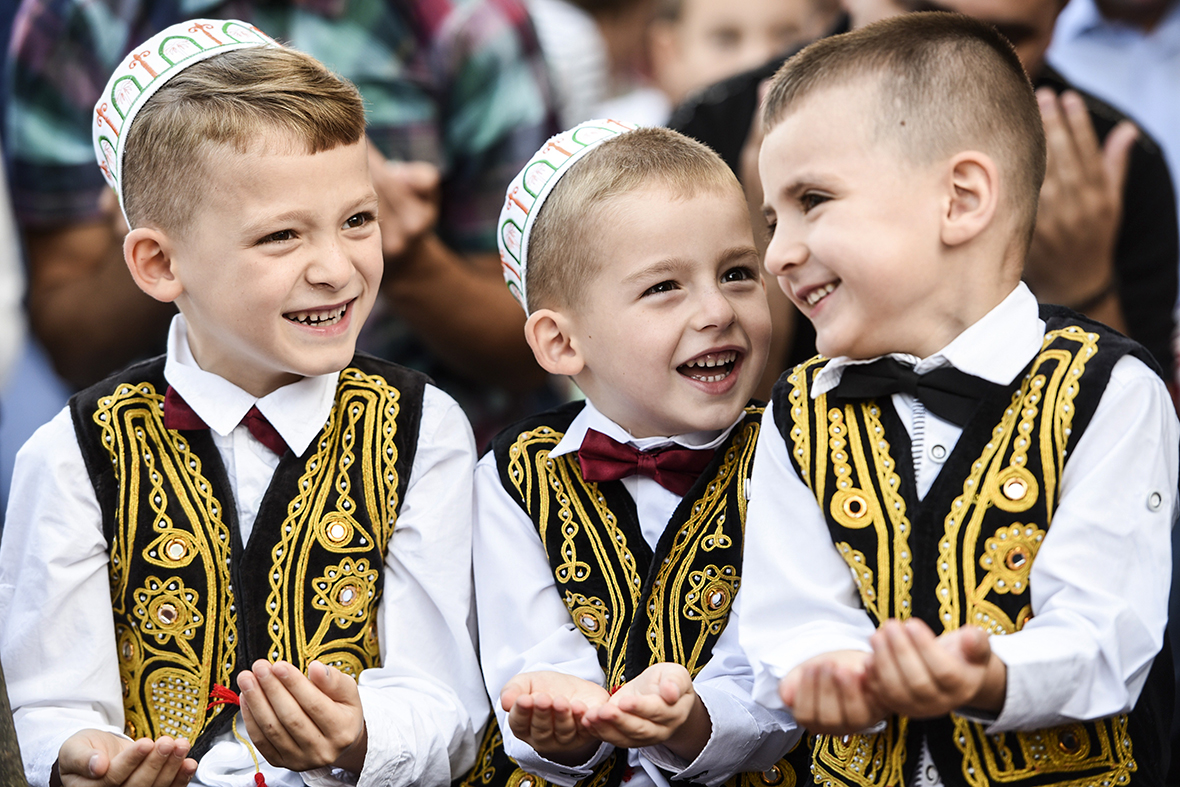

Share
6th June 2016
07:43pm BST

 I heard an urban myth that you can't even have sex...
Yeah it's true. But again, only during daylight hours. No nookie til the sun goes down. No smoking either.
Blimey. So what's the hardest aspect of observing Ramadan?
Honestly? It's not the hunger or thirst, it's the tiredness. Stating you can eat before dawn isn't the full story. The morning prayer ends at dawn, and you've got to finish eating before morning prayer. So in reality, it means breakfast before 3am.
Also, many Muslims go to the local mosque to partake in special late-night prayers during Ramadan, that finish after midnight. So you can imagine that the lack of sleep that this allows, allied to the fact that you're not eating or drinking is extremely energy-sapping.
Wow. It's a pity Ramadan takes place in June.
Well, it doesn't always. Because Islam works to a lunar calendar rather than our Gregorian one, it's slightly out of sync. So each year, Ramadan is around 11 days earlier than it was the previous year.
I heard an urban myth that you can't even have sex...
Yeah it's true. But again, only during daylight hours. No nookie til the sun goes down. No smoking either.
Blimey. So what's the hardest aspect of observing Ramadan?
Honestly? It's not the hunger or thirst, it's the tiredness. Stating you can eat before dawn isn't the full story. The morning prayer ends at dawn, and you've got to finish eating before morning prayer. So in reality, it means breakfast before 3am.
Also, many Muslims go to the local mosque to partake in special late-night prayers during Ramadan, that finish after midnight. So you can imagine that the lack of sleep that this allows, allied to the fact that you're not eating or drinking is extremely energy-sapping.
Wow. It's a pity Ramadan takes place in June.
Well, it doesn't always. Because Islam works to a lunar calendar rather than our Gregorian one, it's slightly out of sync. So each year, Ramadan is around 11 days earlier than it was the previous year.
 Okay, so just to get things straight - this year, the first day of Ramadan is on Monday June 6, and the last day is on Tuesday July 5?
Ish. It's always a bit of a pain in the arse explaining this, but basically the nature of the lunar calendar is that each month starts with the sighting of a new moon.
Some countries use astronomical calculations and observatories to identify a new moon, whilst others rely on the naked eye. It means that some Muslims can start/end Ramadan a day or so before or after other Muslims.
FFS...
Yep. It's doubly annoying if you're Muslim, because a) you can't be certain when to take a day off work for Eid until the night before, and b) sometimes friends and even relatives are doing Eid on different days.
Wait, what's Eid?
Oh sorry, the day after the end of Ramadan is 'Eid al-Fitr', which is a day of celebration. A little bit like Christmas...
Okay, so just to get things straight - this year, the first day of Ramadan is on Monday June 6, and the last day is on Tuesday July 5?
Ish. It's always a bit of a pain in the arse explaining this, but basically the nature of the lunar calendar is that each month starts with the sighting of a new moon.
Some countries use astronomical calculations and observatories to identify a new moon, whilst others rely on the naked eye. It means that some Muslims can start/end Ramadan a day or so before or after other Muslims.
FFS...
Yep. It's doubly annoying if you're Muslim, because a) you can't be certain when to take a day off work for Eid until the night before, and b) sometimes friends and even relatives are doing Eid on different days.
Wait, what's Eid?
Oh sorry, the day after the end of Ramadan is 'Eid al-Fitr', which is a day of celebration. A little bit like Christmas...
 Hang on, that's later in the year isn't it?
That's another Eid - Eid al-Adha
So Muslims get TWO CHRISTMASES?!
Yeah! But there's no fasting before the other one. And anyway, it just means booking another day of your annual leave off.
Bet Muslims can't wait for Ramadan to end...
Kind of, but it's weird. During Ramadan, when you're gasping for a drink, you are literally counting down the days for it to be over. But by the end of the month, you get a bit melancholy about it coming to an end.
It's because, despite how tough it is, Ramadan gives you a real sense of purpose and accomplishment, and you feel that you're in it together with millions of people around the world. When it's over, you miss that.
Hang on, that's later in the year isn't it?
That's another Eid - Eid al-Adha
So Muslims get TWO CHRISTMASES?!
Yeah! But there's no fasting before the other one. And anyway, it just means booking another day of your annual leave off.
Bet Muslims can't wait for Ramadan to end...
Kind of, but it's weird. During Ramadan, when you're gasping for a drink, you are literally counting down the days for it to be over. But by the end of the month, you get a bit melancholy about it coming to an end.
It's because, despite how tough it is, Ramadan gives you a real sense of purpose and accomplishment, and you feel that you're in it together with millions of people around the world. When it's over, you miss that.
 Is there anything I can do to help Muslim mates or work colleagues?
Well, the first thing that people think is they shouldn't eat or drink around Muslims because it feels cruel. That's very kind, but you'll probably find it doesn't really bother most of them. They're surrounded by food and drink throughout the month so it's not really a problem.
What you can do is maybe cut them some slack if they seem a little tired and drained... or even a bit tetchy. Remember that a lot of Muslims are absolutely hooked on caffeine and tobacco, and so to go cold turkey during daylight hours is tough.
Also, if you suspect that Ramadan is really getting to somebody in terms of their health or well-being, please bring it up with them. They probably don't want to admit to themselves that they're struggling, but Ramadan is about spirituality, not about getting ill, so remind them of that fact!
Finally, what does 'Ramadan Mubarak' mean?
It means 'Ramadan blessings' or 'Happy Ramadan'. Similarly, when Ramadan is over and it's time to feast and celebrate on Eid, you can wish your Muslim pals 'Eid Mubarak' - and maybe reward them with some food.
Is there anything I can do to help Muslim mates or work colleagues?
Well, the first thing that people think is they shouldn't eat or drink around Muslims because it feels cruel. That's very kind, but you'll probably find it doesn't really bother most of them. They're surrounded by food and drink throughout the month so it's not really a problem.
What you can do is maybe cut them some slack if they seem a little tired and drained... or even a bit tetchy. Remember that a lot of Muslims are absolutely hooked on caffeine and tobacco, and so to go cold turkey during daylight hours is tough.
Also, if you suspect that Ramadan is really getting to somebody in terms of their health or well-being, please bring it up with them. They probably don't want to admit to themselves that they're struggling, but Ramadan is about spirituality, not about getting ill, so remind them of that fact!
Finally, what does 'Ramadan Mubarak' mean?
It means 'Ramadan blessings' or 'Happy Ramadan'. Similarly, when Ramadan is over and it's time to feast and celebrate on Eid, you can wish your Muslim pals 'Eid Mubarak' - and maybe reward them with some food.
Explore more on these topics:

Life Style | Joe.ie
life style